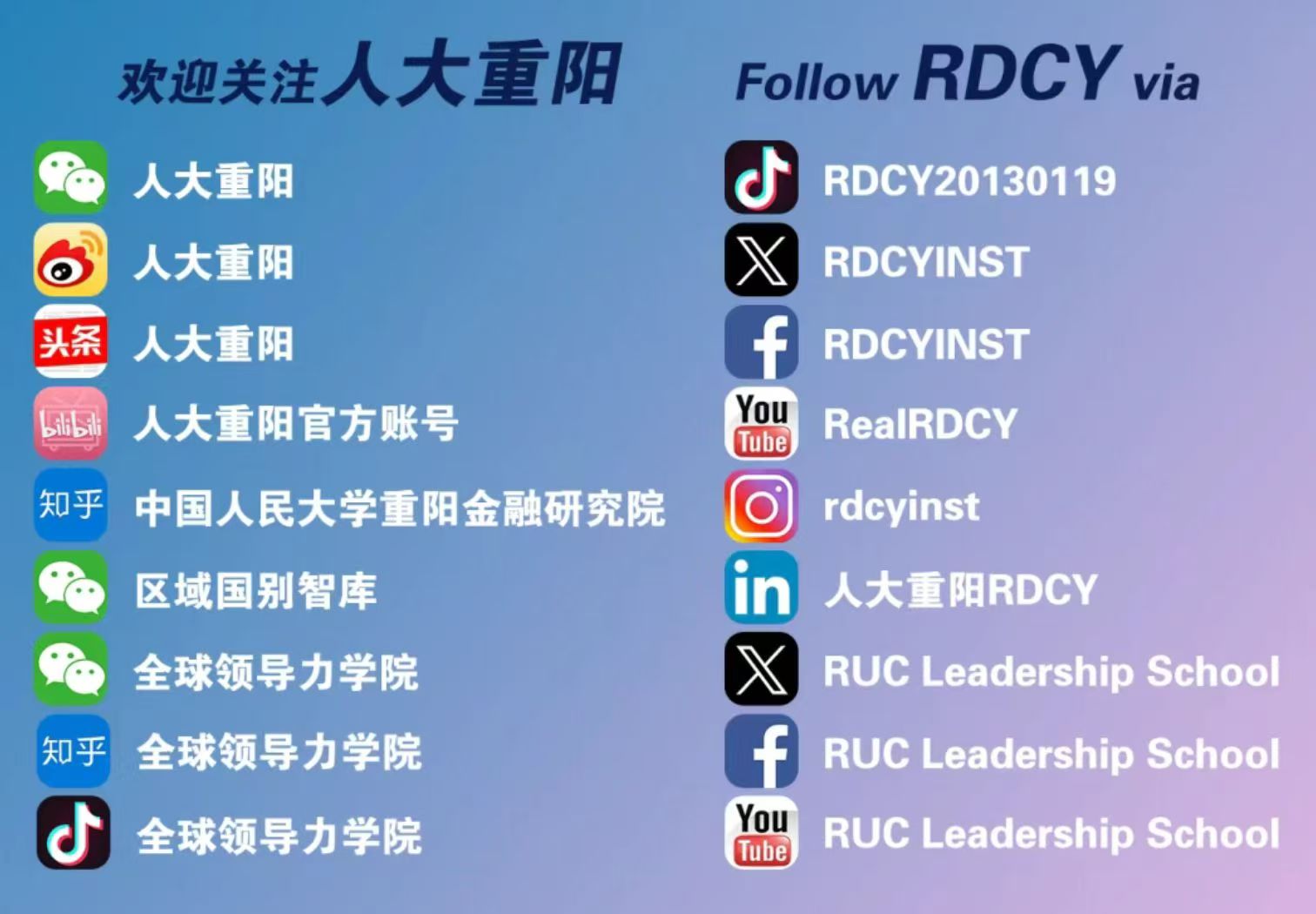发布时间:2025-09-24 作者: 王文
近日,中国人民大学重阳金融研究院院长、全球领导力学院院长王文参与录制CGTN《思想的力量》栏目,围绕“百年变局下的全球治理与中国担当”主题分享了关于全球治理十年的个人经历,相关视频在CGTN国内外近20家平台发布后,阅读量已达100万+。
编者按:中国正在成为全球治理的重要参与者、贡献者和引领者。近日,中国人民大学重阳金融研究院院长、全球领导力学院院长王文参与录制CGTN《思想的力量》栏目,围绕“百年变局下的全球治理与中国担当”主题分享了关于全球治理十年的个人经历,相关视频在CGTN国内外近20家平台发布后,阅读量已达100万+。现将演讲中英文内容及视频发布如下:(中文约2000字,预计阅读时间5分钟)
▲点击查看视频
演讲中文版
今天,我想跟大家分享一个关于全球治理十年的个人经历。
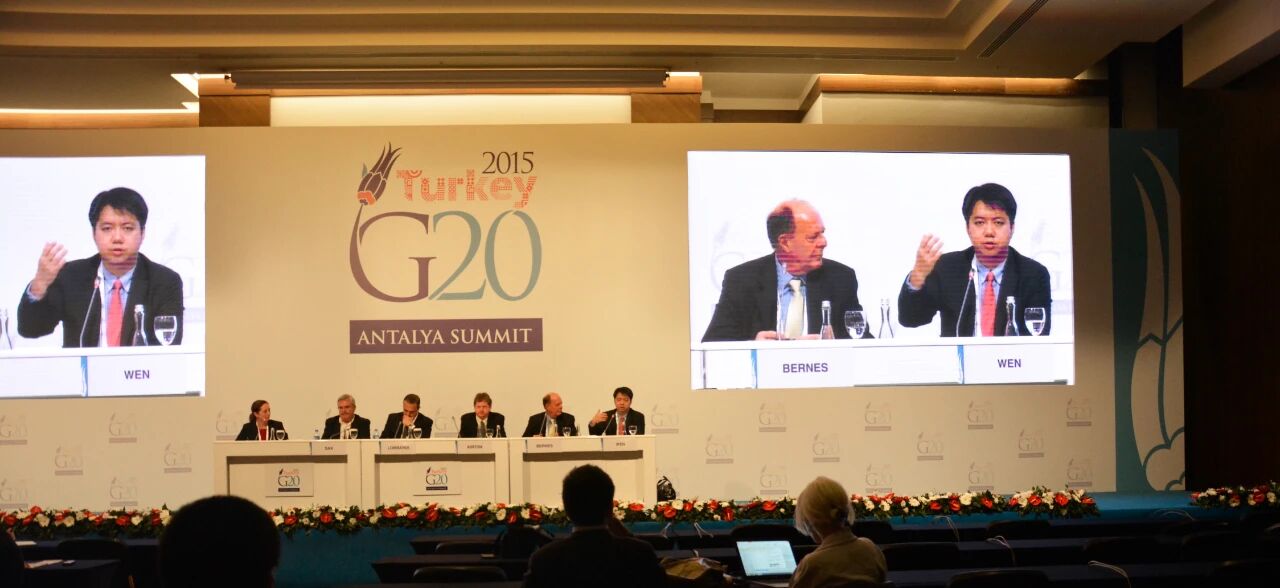
▲2015年王文在土耳其G20峰会记者会现场向全球媒体介绍中国的全球治理理念。
这是2015年我在土耳其G20峰会记者会现场向全球媒体介绍中国的全球治理理念。说实话,那时候现场媒体很少。没有多少国家相信,当时的中国还有全球治理的理念,人们更多的是对中国的怀疑。
许多人认为,中国几年前刚跃升为世界第二大经济体,未来在成为世界第一大经济体的进程中,一定会与现有霸权国美国陷入激烈斗争。哈佛大学著名教授格雷厄姆·艾利森还为此取了一个意味深长的名字,叫“修昔底德陷阱”。
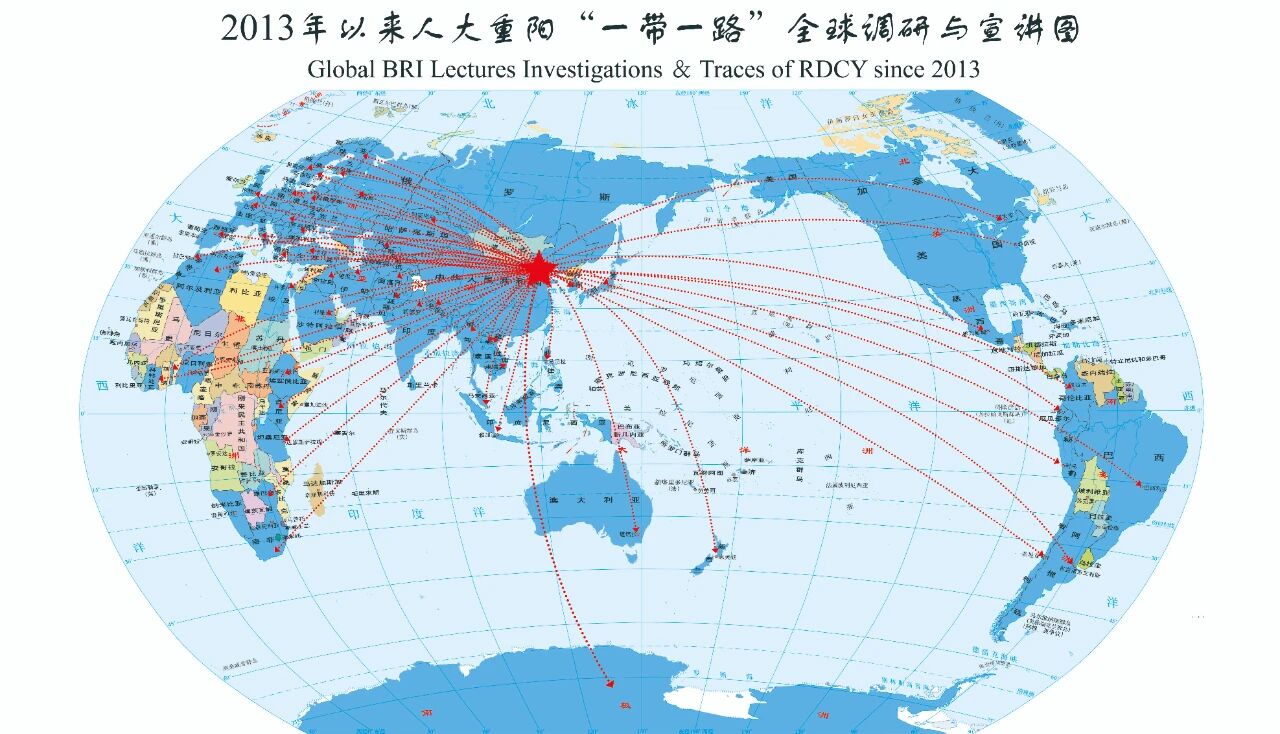
十年过去了,我和同事们去了100多个国家介绍中国的全球治理理念。与此同时,中国举办了很多国际峰会介绍自己的全球治理理念。比如,2016年G20杭州峰会、2017年第一届“一带一路”国际合作高峰论坛,此后在2019年、2023年再次召开。
中国还在厦门、青岛、天津等地召开过若干次金砖峰会以及上海合作组织峰会,还召开了在过去看来,有些敏感的“中国共产党与世界政党高层对话会”。
在中国召开了这么多场峰会后,我听到一位经常来华访问的外国前总统说:过去10年,美国多次发动重大军事行动,想要证明美国仍是世界最强大的国家,而中国召开了多次重大的峰会,表明中国愿与全世界一起建设共商共建共享的新型国际关系体系。
2025年9月,在天津举行的上海合作组织峰会上,习近平主席提出“全球治理倡议”。这是继全球发展倡议、全球安全倡议、全球文明倡议后,再次提出的一个重大倡议。
中国这些倡议是中国对外政策的基石,也是其外交策略的先导,标志着一个正在崛起的全球文明大国对世界的愿景,要逆转当下全球发展失速、全球安全失控、全球文明失调、全球治理赤字的现状,推动构建更加公正合理的全球治理体系,携手构建人类命运共同体。
四大倡议的深层价值,在于它们构成了一个相互支撑的有机整体。发展是安全的基础,安全是发展的条件,文明互鉴是增进理解互信的关键,而全球治理改革则是实现这三大目标的制度保障。这种系统性思维正是应对当下全球性复杂挑战所急需的。
某些西方媒体对中国提出四大倡议的质疑,往往源于零和博弈的旧思维和制度性焦虑。事实上,中国提出四大倡议并非要推倒重来,而是希望改革和完善现行国际体系。
历史已证明,新一轮大国崛起必然伴随理念贡献和制度创新。17世纪建立的威斯特伐利亚体系奠定了现代国际关系的基础。20世纪建立的布雷顿森林体系确立了二战后的国际经济秩序。如今,中国提出的四大倡议则回应了全球南方国家对公平公正秩序的普遍期待。中国国家形象的好感度快速上升,也证明了这一点。近年来多项全球民意调查结果都是如此。
文明型全球强国的崛起,不仅需要经济实力和军事实力,更需要思想引领力和议程设置力。四大倡议如同四维坐标,定位了中国与世界互动的新范式,不再是简单的商品输出和资本输出,而是发展经验、安全理念、文明智慧和治理策略的共享。
这种“理念外交”标志着中国正逐渐从全球化的参与者向引领者转型、从国际公共产品的消费者向提供者转变。
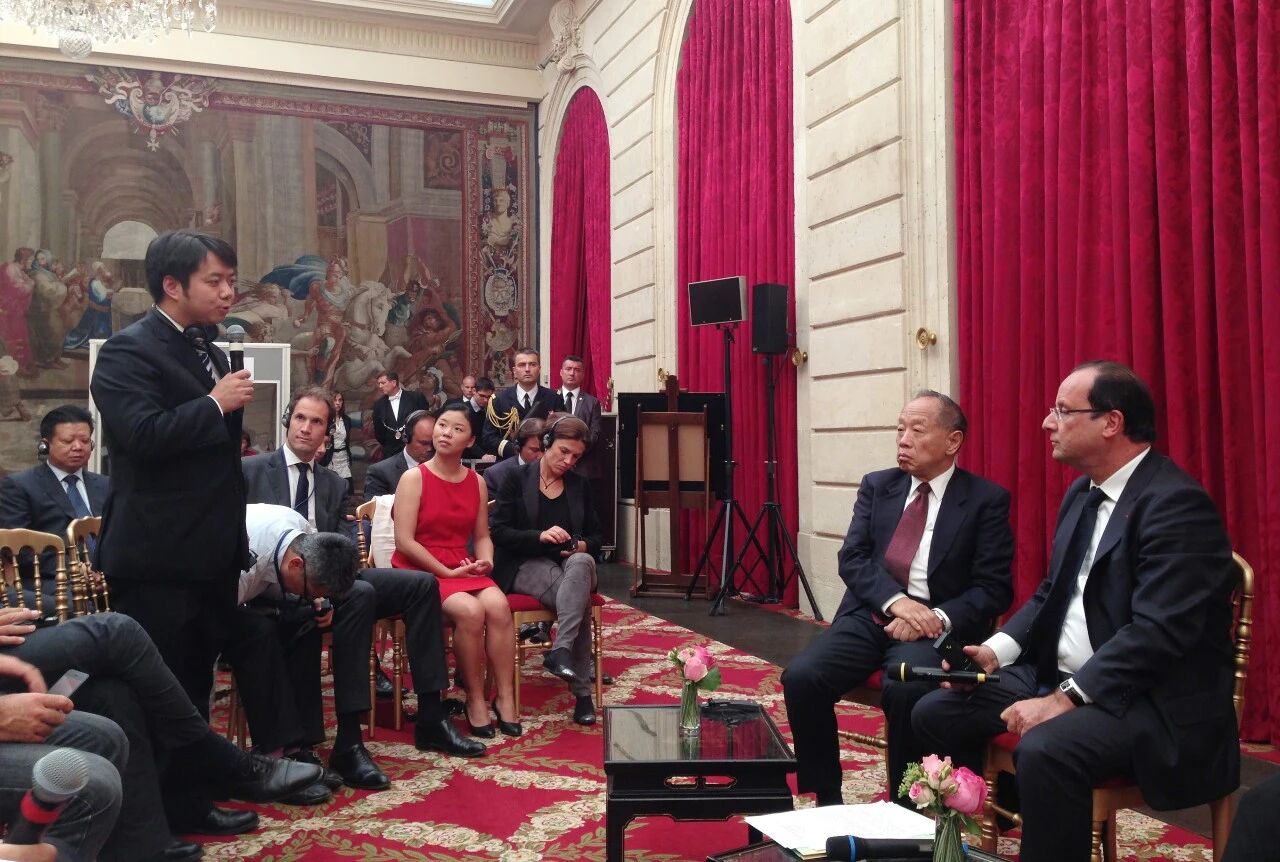
王文当面提问时任法国总统奥朗德
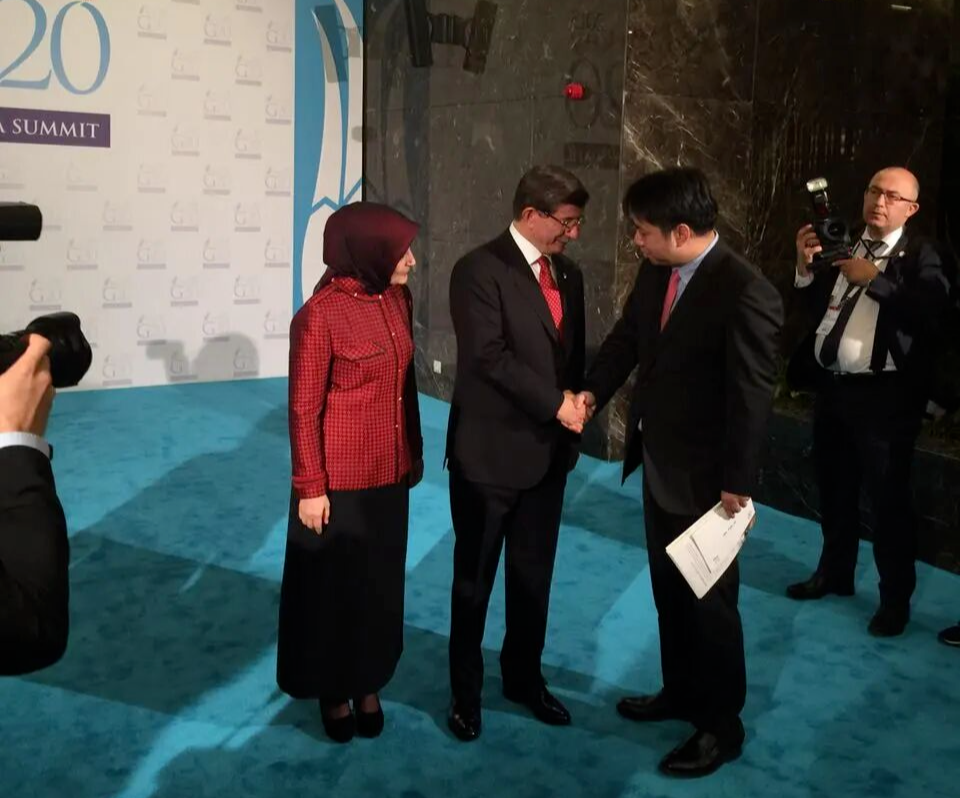
王文与时任土耳其总统埃尔多安当面交流
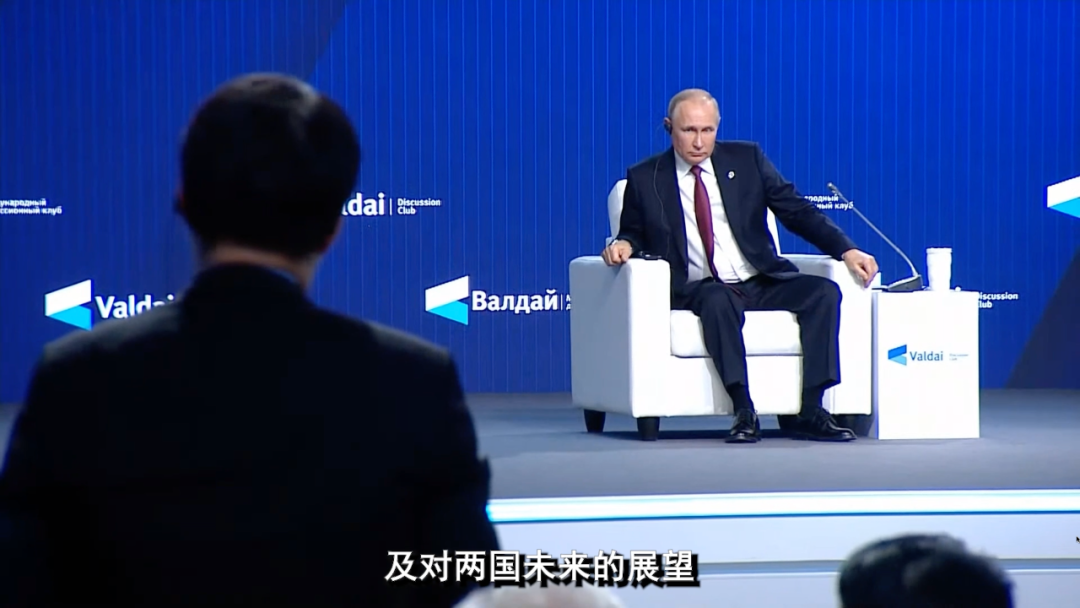
2022年及2024年当面提问普京总统
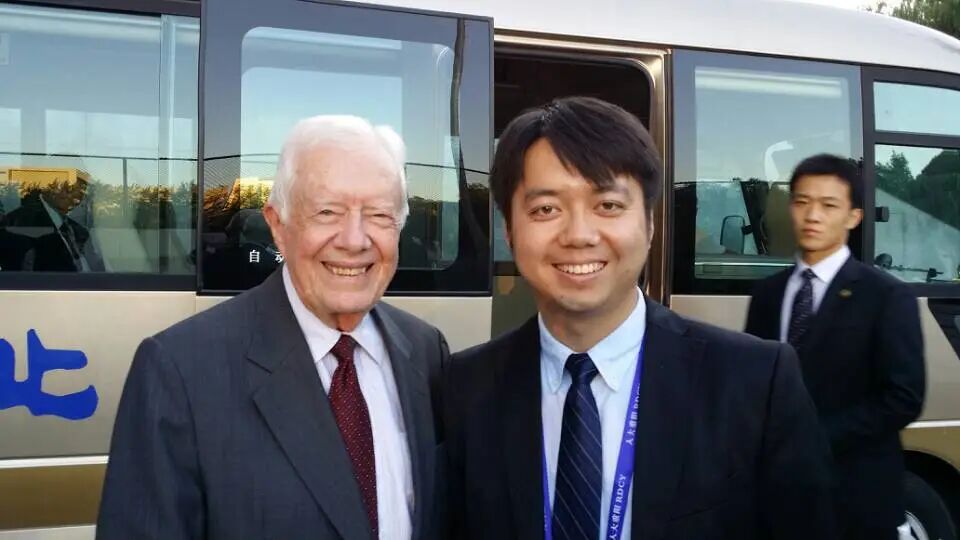
2014年王文与美国前总统吉米·卡特交流后合影留念
这些年,我曾当面和几十个国家的总统、总理交流过,包括时任法国总统奥朗德、时任土耳其总统埃尔多安、俄罗斯总统普京,还有已故的美国总统吉米·卡特,以及许多知名的国际学者专家。越来越多国际友人已感受到,中国提供的不是简单的解决方案,而是应对全球性挑战的系统思维框架和方法论。
对此,十年来,我和同事们积极参加国际会议,到上百所大学去讲课,在数百家国际媒体发表文章,这些努力都折射了中国人积极参和引领全球治理,共建美好生活的努力。
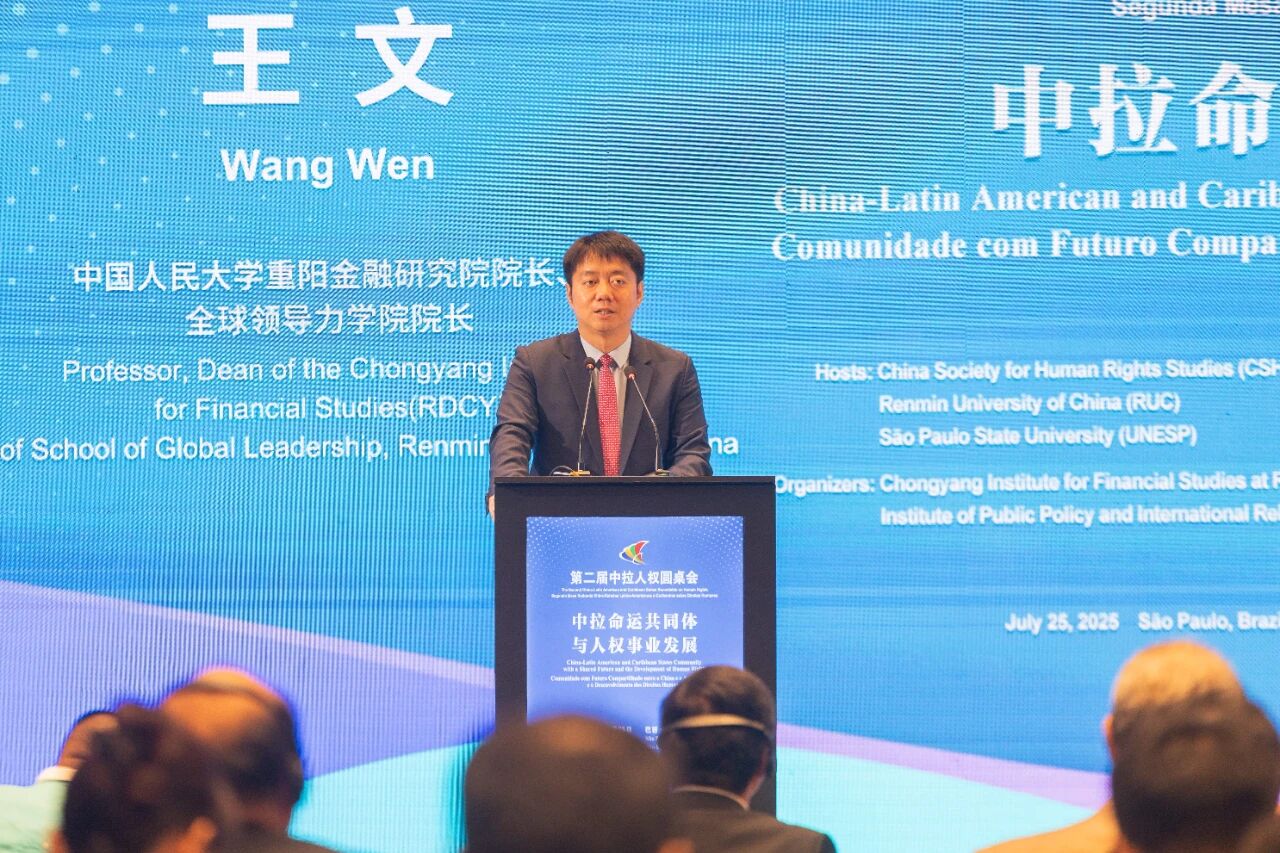
▲2025年7月25日,王文主持第二届中拉人权圆桌会
2025年7月,我在巴西圣保罗主持中拉人权对话,20多个拉丁美洲国家代表热烈表示,愿意与中国合作,以提升人类未来福祉。
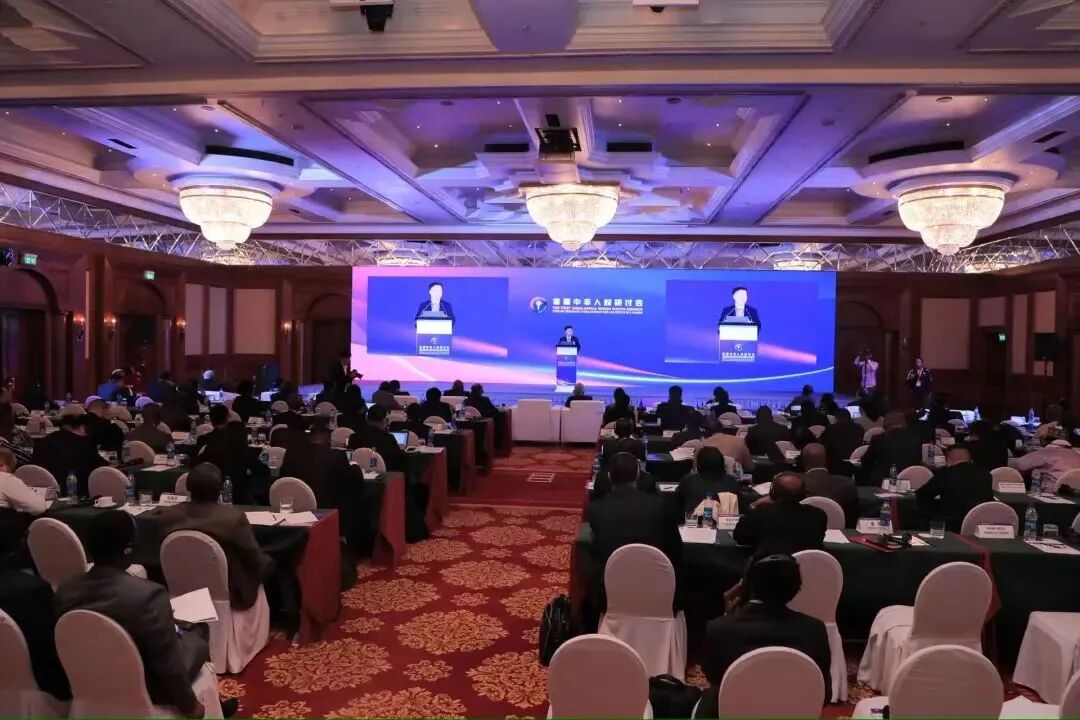
▲2025年8月22日,王文在首届中非人权研讨会上发表演讲
8月,我在亚的斯亚贝巴发表《2050年中非关系的前景展望》演讲,40多个非洲国家的参会者纷纷表示赞同。
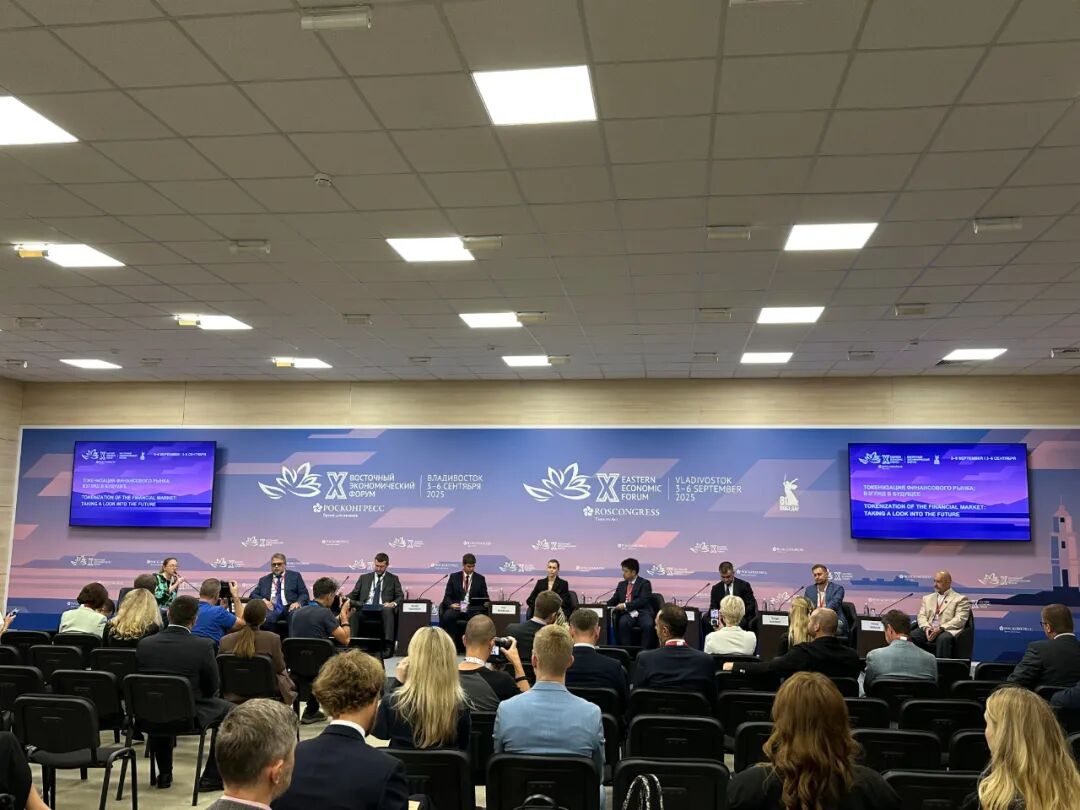
▲2025年9月3-6日,王文出席第十届东方经济论坛三场分论坛并发言
9月,我在俄罗斯符拉迪沃斯托克的东方经济论坛讲述未来的东北亚崛起,来自30多个国家的听众都很兴奋。
这些亲身的经历都在表明,相比于10年前我已不再孤单,也不再需要艰难地寻找听众,这是因为中国在全球层面的治理理念和愿景越来越受到关注。
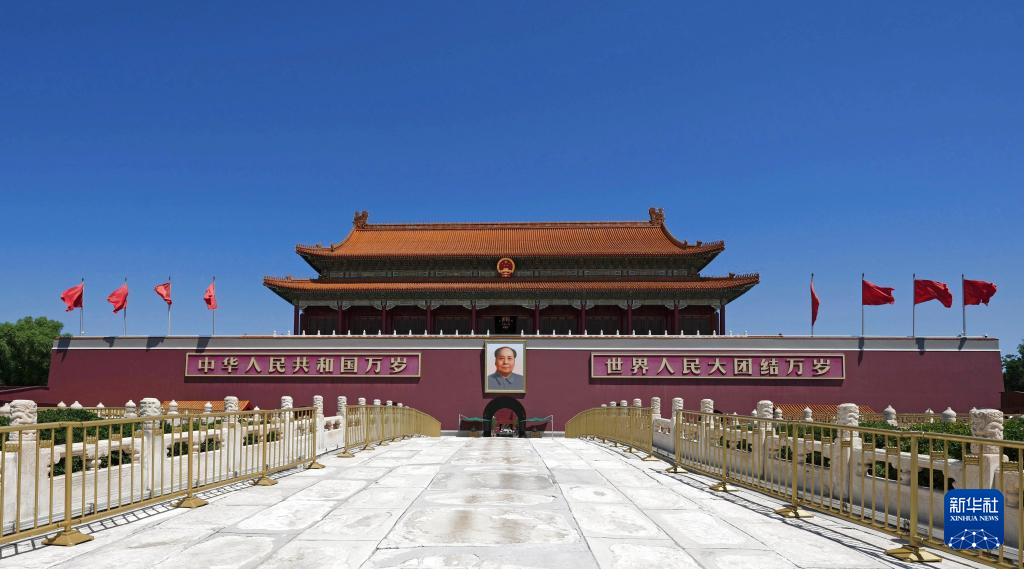
最后,我想分享一张大家都很熟悉的天安门的照片,大家还记得这两句新中国成立时的标语吗?左边写着:中华人民共和国万岁;右边写着:世界人民大团结万岁。这是中国的战略决心,也是中国人民的奋斗目标,所以我相信,世界人民大团结和构建人类命运共同体的目标一定能够实现。
谢谢!
演讲英文版
Today, I would like to share with you a personal story about global governance over the past decade.
This is me introducing China's global governance philosophy to the global media at a press conference at the G20 Summit in Turkiye in 2015. To be honest, there were very few media outlets at the time. Not many countries believed that China still had a global governance philosophy. People at the time were more skeptical of China.
Many believed that China, having become the world's second-largest economy a few years ago, would inevitably be caught in a fierce struggle with the existing hegemon, the United States, on its way to becoming the world's largest economy. Harvard professor Graham Allison even gave it the charming name “THUCYDIDES TRAP”.
Ten years later, I, with my colleagues have traveled to over 100 countries to explain China's philosophy. At the same time, China has held many important summits to introduce its global governance philosophy.
The 2016 G20 Hangzhou Summit and the first Belt and Road Forum for International Cooperation were held in 2017, with further summits in 2019 and 2023. China also held several BRICS and Shanghai Cooperation Organization summits in Xiamen, Qingdao, and Tianjin, as well as the once-sensitive "Dialogue between the Communist Party of China and the World”.
A former foreign president who frequently visits China once remarked: Over the past decade, the United States has launched dozens of major military operations to prove that it remains the world's most powerful country, while China has held dozens of major summits to demonstrate its desire to work with the world to promote a new international system of extensive consultation, joint contribution and shared benefits.
In September 2025, at the Shanghai Cooperation Organization summit in Tianjin, President Xi Jinping proposed the "Global Governance Initiative." This was another major initiative from China, following the Global Development Initiative, the Global Security Initiative, and the Global Civilization Initiative. These initiatives are the cornerstones of China's foreign policy and the forerunners of its future strategy. They represent the vision of a rising civilizational global power for the world: the hope to reverse the current slowdown in global development, the deterioration in global security, the imbalance in global civilizational impact, and the deficit in global governance. Also they represent the vision to promote the building of a more just and equitable global governance system and work together for a community with a shared future for humanity.
The deeper value of the four initiatives lies in their mutually supportive organic whole. Development is the foundation of security, security is the prerequisite for development, mutual learning among civilizations is the key to mutual understanding and trust, and global governance reform is the institutional guarantee for achieving the first three goals. This kind of systematic thinking is urgently needed to address the challenges of global complexity.
Some Western media outlets' skepticism about China's four initiatives often stems from outdated zero-sum game thinking and institutional anxieties. In fact, China's four initiatives are not meant to reinvent the wheel, but rather to reform and improve the existing international system.
History has proven that the rise of a new great power is inevitably accompanied by ideological contributions and institutional innovation. The Westphalian system, led by Britain in the 17th century, laid the foundation for modern international relations, and the Bretton Woods system, created by the United States in the 20th century, established the post-World War II international economic order.
Today, China's four initiatives respond to the widespread expectations of countries in the Global South for a fair and just international order. This is further evidenced by the sharp rise in favorable views of China's national image, as shown in numerous global opinion polls in recent years.
The rise of a civilizational global power requires not only economic and military strength, but also ideological leadership and agenda-setting power. The four initiatives, like four-dimensional coordinates, define a new paradigm for China's interaction with the world: no longer simply exporting goods and capital, but sharing development experience, security concepts, civilizational wisdom, and governance strategies.
This “philosophy of diplomacy” signals China's gradual transformation from a participant to a leader in globalization, and from a consumer to a provider of international public goods.
Over the years, I have personally communicated with presidents and prime ministers from dozens of countries, including then-French President Hollande, Turkish Prisident Erdoğan, Russian President Putin, and the late US President Jimmy Carter and German President Frans Schütt, as well as many internationally renowned scholars and experts.
More and more countries and international organizations have come to realize that China offers not simple solutions but a systematic framework and methodology for addressing global challenges.
In this regard, over the past decade, my colleagues and I have actively participated in a lot of international conference, lectured at hundreds of universities, and published articles in hundreds of international media outlets. All of this reflects the Chinese people's active participation in leading global governance and building a better world.
In July 2025, I hosted the China-Latin America Human Rights Dialogue in São Paulo. Representatives from over 20 Latin American countries expressed a strong desire to cooperate with China to enhance the future well-being of mankind.
In August, I delivered a speech in Addis Ababa, titled "Prospects for China-Africa Relations in 2050," which was enthusiastically endorsed by participants from over 40 African countries.
In September, I spoke at the Eastern Economic Forum in Vladivostok, about the upcoming rise of Far East. The audience, representing over 30 countries, was thrilled.
These personal experiences demonstrate that compared to 10 years ago, I am no longer alone, nor will I struggle to find an audience. This is because China's philosophies and visions for global governance is gaining increasing attention.
Finally, I'd like to share a familiar photo of the Tiananmen Gate. Remember those two slogans from the founding of the People's Republic of China?
On the left, it reads "Long Live the People's Republic of China," and on the right, "Long Live the Great Unity of the People of the World." This is China's strategic resolve and the goal the Chinese people strive for. So I believe that the great unity of the people of the world and the goal of building a community with a shared future for humanity will surely be achieved.
Thank you!
